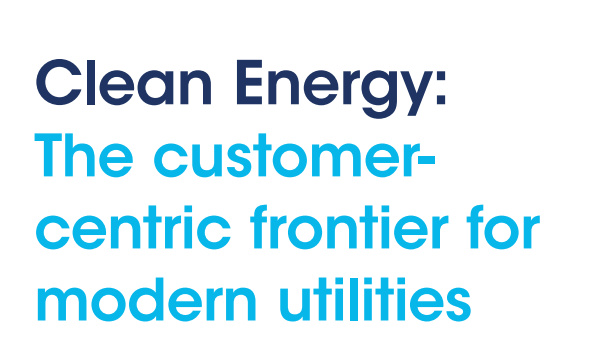“We’ve made savings of around 85%”: Embracing green energy for data centers by migrating to Iceland
Shifting away from the UK helped Shearwater GeoServices adopt green energy for low-cost, clean seismic processing


As companies strive to meet sustainability goals across their operations and cut energy bills, the option of migrating assets to cheaper and greener regions is becoming increasingly appealing.

Shearwater GeoServices is a seismic acquisition and processing firm, working primarily with the oil and gas industry to produce seismic surveys of rocks under the seabed. In late 2021, as it looked to expand its operations while chasing lower energy prices and more sustainable operations, Shearwater began a project to migrate its workloads and equipment to the Icelandic data center services company atNorth.
“I would say that we've made savings of around 85%. The hosting is about 50% or maybe 40% cheaper, but the rest of the cost – the electricity – is literally more than 90% cheaper,” says Nick Riddalls, hemispheric head of processing at Shearwater.
Shearwater operates 24 large vessels in waters around the world, each of which captures almost 1TB of data per day. This data is treated with approximately 50 processes to remove noise and prepare it for data analytics – an intensive process that requires serious computing power.
Riddalls had been unhappy with the customer service at Shearwater’s UK data center and was seeking a more collaborative, low-cost solution for Shearwater’s existing workloads. He also sought a provider through which his firm could lay the groundwork for expansion down the line.
The benefits of green energy for data centers
Following Russia’s invasion of Ukraine in 2022, Riddalls was also among many in the industry to become concerned about the rising energy costs and worsening energy security in the UK. At the same time, Shearwater had been upping its focus on meeting environmental, social, and corporate governance (ESG) goals, as firms turned to sustainability to tackle disruption.

Nick Riddalls leads data processing services for the Eastern Hemisphere at Shearwater GeoServices, covering activity in Iceland, the UK, India, Malaysia, and Australia. In his almost 12 years the company, Riddalls has overseen processing and operations.
This led the firm to atNorth, which uses a number of Iceland’s unique selling points to offer low-cost, green data center operations. Iceland sources virtually 100% of its energy from renewable sources, with around 73% coming from hydropower and 27% from geothermal power according to data from the Government of Iceland. This has driven energy prices down in Iceland and protected it from the energy crisis while also giving firms a guarantee that energy consumed in Iceland has been produced sustainably.
Get the ITPro daily newsletter
Sign up today and you will receive a free copy of our Future Focus 2025 report - the leading guidance on AI, cybersecurity and other IT challenges as per 700+ senior executives
“So maybe that's a reflection of the horrendous cost of electricity in the UK at the moment,” Riddalls adds.
“It's also a reflection on the [power usage effectiveness] (PUE), of the data center. The PUA in the UK is about 1.8 and in Iceland it’s 1.2, so that just feeds two into your savings and your power cost.
Riddalls argues that in this respect, “Iceland is a standout example of how you can save the planet and still generate business, run your data centers”.
While Shearwater uses the public cloud for overflow tasks at peak workload, including AWS, Azure, and Google Cloud, Riddalls tells ITPro that it’s more economical to do the majority of its processing in a data center.
“Cloud is really good because you can scale it and you can just end up paying for what you use, so in that respect it can be quite efficient. But our findings so far have been that running whole projects in the cloud you end up spending a lot of money.”
Migration pains
Shearwater has felt this cloud cost especially keenly in 2023, as delays to the migration forced the firm to spend more money on cloud to cover its workload demand. Riddalls tells ITPro that the migration process has taken longer than expected, due to expansion plans but also due to conflicting business demands.
At the time of writing, Shearwater has migrated approximately a third of its resources to atNorth’s data center in Iceland, with two-thirds still to come ahead of the termination of the UK data center contract in March.
"I must acknowledge that I may have contributed to this situation, as I could have been more proactive in coordinating with our IT staff," he tells ITPro.
"However, it’s important to remember that they are managing a multitude of tasks, including supporting our vessels and other offices. Their efforts are greatly appreciated"
“Moving equipment across large areas and interacting with customs, that sort of thing takes a lot of planning and I thought a year would be enough actually. Maybe that’s naive.
"While I anticipated that my requests would be sufficient, I understand that there are other business needs that may take precedence. Given the significant daily costs of our vessels, their maintenance understandably becomes a priority, as was the case last year."
Riddalls says leaders need to spend as much time as they can planning to avoid unwanted delays like those he has had to deal with. "The duration and timing of this process have been quite challenging for me," he says.
At the same time, Riddalls says that “from a technical point of view, I’m very happy with proof of concept actually”. He praises the atNorth staff for being knowledgeable, helpful, and good overall to work with.

ICE02, the data center in atNorth's facility where Shearwater is located.
Supporting IT teams through server migration
The migration has not been the remit of the entire IT department, falling primarily under the remit of the high-performance computing (HPC) team at Shearwater. While this comprises 12 staff in total, Riddalls tells ITPro that only two or three staff have been involved in the move to Iceland directly. This is because the IT team services the entire business and keeping services running smoothly while migrating proved a challenge.
Delays in the migration have impacted internal customers, namely through a shortage of server nodes for February and March. Shearwater has mitigated this by allocating funds for extra spend on Google Cloud and AWS to keep projects running on time. If he could do it over, Riddalls says he’d move from proof of concept to the full move much sooner and engage with the HPC team much more closely.
“The main lesson is rather than leaving the HPC guys to plan all this, actually interact more closely with them, let them understand the business case, and talk to them about what other aspects they have going on in their life that might impact this move,” he says.
RELATED RESOURCE

Find out how utility companies can achieve their clean energy initiative goals
When it comes to increased communication, Riddalls urges leaders to not only clearly explain demands to their IT department but to also “really argue your corner against other demands that people in the business might come up and ask them for”.
"If Mr. Smith and I both have requests for the HPC team, it’s not their responsibility to prioritize. Instead, Mr Smith and I should collaborate to establish a priority plan, ensuring the HPC team isn’t overburdened."
The benefits of taking your data abroad
Shearwater operates a client-server model, through which customers interface with Shearwater data centers via an interactive software platform on their desktops. For this to run effectively, there needs to be as little latency as possible. Riddalls explains that this was one of the chief concerns around the move to Iceland and one that Shearwater’s proof of concept for the project sought to probe.
“The latency between here and the UK data center was 3-4 milliseconds (ms), so near instantaneous. The latency between the UK and Iceland is 20-30 ms, so what I wanted to understand is if that’s still usable from a user point of view, or if it’s not.”
After running the tests, Riddalls and his team decided that while higher latency was a downside of the migration, it was an acceptable “trade-off” in light of the other positives the project offered.
On a wider scale, Riddalls encouraged IT leaders to go out of their comfort zones when it comes to sourcing computing or deciding on a location for servers.
“You don’t need to be in close proximity to your compute,” Riddall says.
“In the old days, companies used to have their compute in their offices and that used to be a right nightmare because you’d have to put extra power and cooling and all that sort of stuff, I mean awful. And so we suddenly got comfortable with your compute being a few miles away in a data center. So just extrapolate that out a bit, then suddenly you've got it in another country.”
Something that Shearwater and atNorth are eager to demonstrate is the cost and carbon savings that can be achieved through a migration at this scale. Riddalls urges business leaders to carefully consider the data center options at their disposal in the Nordics and move from proof of concepts to
“Look at the reason why you want to be moving, is it cost, is it usability? And then set the proof of concept – I mean, the proof of concept idea is great, there's no massive commitment so if doesn't work fine, you just bin it.

“And then I mean, our transition from proof of concept to actual transfer took way too long. But come up with a plan and milestones that are fairly short-term, really engage with all the stakeholders in the process be IT, be it the customers, really engage with them to figure out what you want to achieve.
“Some of this is my responsibility, when you're running a department or whatever it is, you get sucked up into the day-to-day noise sometimes. You sort of think that that project running over there is actually going okay, everything’s going tickety-boo, well sometimes it's not and that person hasn't told you because they might be too busy doing something else to think about telling you.”

Rory Bathgate is Features and Multimedia Editor at ITPro, overseeing all in-depth content and case studies. He can also be found co-hosting the ITPro Podcast with Jane McCallion, swapping a keyboard for a microphone to discuss the latest learnings with thought leaders from across the tech sector.
In his free time, Rory enjoys photography, video editing, and good science fiction. After graduating from the University of Kent with a BA in English and American Literature, Rory undertook an MA in Eighteenth-Century Studies at King’s College London. He joined ITPro in 2022 as a graduate, following four years in student journalism. You can contact Rory at rory.bathgate@futurenet.com or on LinkedIn.
-
 Bigger salaries, more burnout: Is the CISO role in crisis?
Bigger salaries, more burnout: Is the CISO role in crisis?In-depth CISOs are more stressed than ever before – but why is this and what can be done?
By Kate O'Flaherty Published
-
 Cheap cyber crime kits can be bought on the dark web for less than $25
Cheap cyber crime kits can be bought on the dark web for less than $25News Research from NordVPN shows phishing kits are now widely available on the dark web and via messaging apps like Telegram, and are often selling for less than $25.
By Emma Woollacott Published